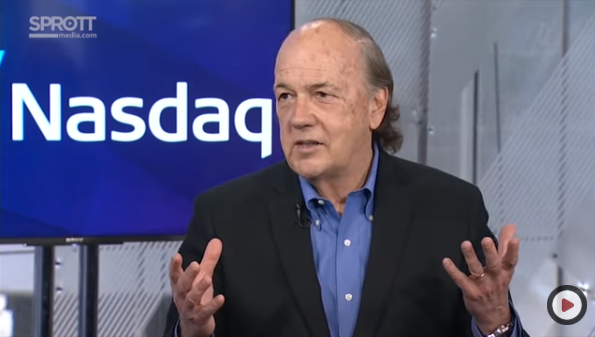Gold speculator and media commentator James Rickards said in a blog post that “free riding” by passive investors is one of the oldest and biggest problems in economics and society in general, and that it will sink the stock market.
Rickards compared passive investors to parasites on an elephant. The parasites suck the elephant’s blood but contribute nothing to its well-being and when an elephant gets too many parasites, it will die, then killing the parasites.
Per Rickards’ blog on Daily Reckoning:
“Yet there’s another parasite problem affecting markets that is harder to see and may be even more dangerous that the bank CEO free riders. This is the problem of ‘active’ versus ‘passive’ investors.
An active investor is one who does original research and due diligence on her investments or who relies on an investment adviser or mutual fund that does its own research. The active investor makes bets, takes risks and is the lifeblood of price discovery in securities markets.
The active investor may make money or lose money (usually it’s a bit of both) but in all cases earns her money by thoughtful investment. The active investor contributes to markets while trying to make money in them.
A passive investor is a parasite. The passive investor simply buys an index fund, sits back and enjoys the show. Since markets mostly go up, the passive investor mostly makes money but contributes nothing to price discovery.”
So, Rickards, says, passive investors are like the parasites on the elephant. And eventually, passive investors will bring Mr. Market down just like parasites on the big beast.
More from his blog:
“What happens when the passive investors outnumber the active investors? The elephant starts to die.
Since 2009, over $2.5 trillion of equity investment has been added to passive-strategy funds, while over $2 trillion has been withdrawn from active-strategy funds.
The active investors who do their homework and add to market liquidity and price discovery are shrinking in number. The passive investors who free ride on the system and add nothing to price discovery are expanding rapidly. The parasites are starting to overwhelm the elephant.
There’s much more to this analysis than mere opinion or observation. The danger of this situation lies in the fact that active investors are the ones who prop up the market when it’s under stress. If markets are declining rapidly, the active investors see value and may step up to buy.
If markets are soaring in a bubble fashion, active investors may take profits and step to the sidelines. Either way, it’s the active investors who act as a brake on runaway behavior to the upside or downside.
Active investors perform a role akin to the old New York Stock Exchange specialist who was expected to sell when the crowd wanted to buy and to buy when the crowd wanted to sell in order to maintain a balanced order book and keep markets on an even keel.
Passive investors may be enjoying the free ride for now but they’re in for a shock the next time the market breaks, as it did in 2008, 2000, 1998, 1994 and 1987.
When the market goes down, passive fund managers will be forced to sell stocks in order to track the index. This selling will force the market down further and force more selling by the passive managers. This dynamic will feed on itself and accelerate the market crash.
Passive investors will be looking for active investors to “step up” and buy. The problem is there won’t be any active investors left or at least not enough to make a difference. The market crash will be like a runaway train with no brakes.
The elephant will die.
